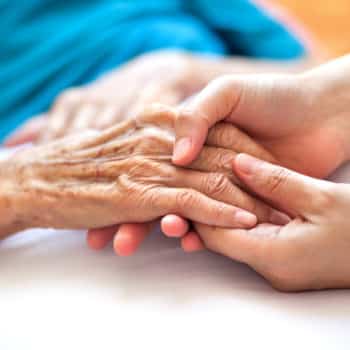What is Alzheimer’s Disease?
The most common form of dementia is Alzheimer’s disease, which affects about 6.5 million people in the U.S. alone and accounts for approximately 70 percent of all diagnosed memory problems. Estimates predict that the number of cases of Alzheimer’s will double by 2050.
Alzheimer’s results from a build up of plaques between brain cells, interfering with neuron communications inside the brain. Inside these neurons, abnormal proteins become tangled and complicate transmissions. Typically, Alzheimer’s patients present low activity in the posterior cingulate gyrus as well as the temporal and parietal lobes. As the disease progresses, activity decreases in other areas of the brain.
Common Symptoms of Alzheimer’s Disease:
- Loss of memory
- Difficulties in completing habitual tasks
- Trouble with math and numerical concepts
- Growing disoriented and/or lost in familiar locations
- Disorientation when navigating dates and times
- Finding vocabulary and conversations challenging to follow
What is Vascular Dementia?
Vascular dementia results from blockages in blood vessels and reduced blood flow to the brain. Approximately 10 percent of dementia patients are affected with vascular dementia. The vascular deficiencies that cause this form of dementia can result from a number of sources including stroke, “mini strokes” (aka TIAs), and other contributing factors such as diet and lifestyle choices.
Common Symptoms of Vascular Dementia:
- Unstable motion and/or walking
- Difficulty concentrating
- Growing confused easily
- Declining memory function
- Incontinence
What is Frontal-Temporal Lobe Dementia?
Frontal-temporal lobe dementia is a neurodegenerative disease affecting the frontal and temporal lobes. This disease represents approximately five percent of diagnosed dementia. The decreased blood flow and low activity in these critical brain sectors result in flawed behavior, memory, thinking, and language comprehension.
Cases of frontal-temporal lobe dementia usually begin at younger ages, most often in the 45-60 age range. This condition shares some symptoms with late-onset bipolar disorder and can be misdiagnosed. As with all brain function concerns, it is important to receive a thorough evaluation for a proper diagnosis to ensure any prescribed treatment is appropriate.
Common Symptoms of Frontal-Temporal Lobe Dementia:
- Loss of impulse control
- Changes in personality
- Lethargic attitude
- Difficulty with language or speaking
- Inappropriate conduct
- Compulsive behavior
What is Pseudodementia?
To complicate matters, dementia shares symptoms with multiple other disorders; and there can be challenges identifying the true condition. Pseudodementia occurs when a patient has a disorder other than dementia but has symptoms closely resembling those found in dementia patients. As an example, depression fits this category as both depression and dementia can result in apathy and behavioral changes.
The best first step in any treatment is an accurate diagnosis. Without a proper diagnosis, the disease will not be treated properly, and conditions may accelerate in a negative pattern until the treatment is corrected.






